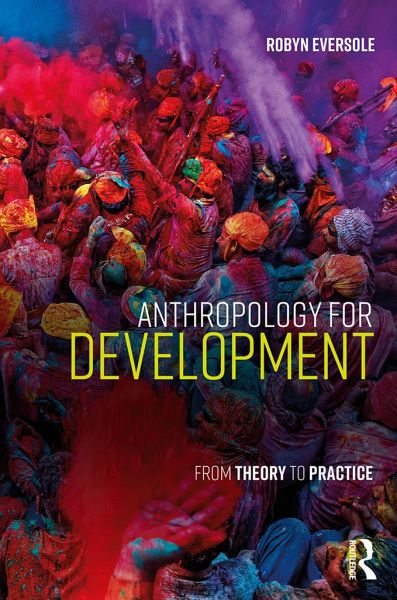
Anthropology for Development
From Theory to Practice
Versandkostenfrei!
Versandfertig in 1-2 Wochen
50,99 €
inkl. MwSt.

PAYBACK Punkte
25 °P sammeln!
This text introduces development studies students to a set of core ideas from the anthropology of development, and then showing how these insights from anthropology can be applied in practice to solve real-world development dilemmas. Written for advanced undergraduate and postgraduate students who are professionals-in-training in development studies programs around the world. This volume clearly explains key insights from the anthropology of development and draws them into a framework for addressing some of the challenges facing development policy and practice: poverty, participation, sustaina...
This text introduces development studies students to a set of core ideas from the anthropology of development, and then showing how these insights from anthropology can be applied in practice to solve real-world development dilemmas. Written for advanced undergraduate and postgraduate students who are professionals-in-training in development studies programs around the world. This volume clearly explains key insights from the anthropology of development and draws them into a framework for addressing some of the challenges facing development policy and practice: poverty, participation, sustainability, and innovation.














